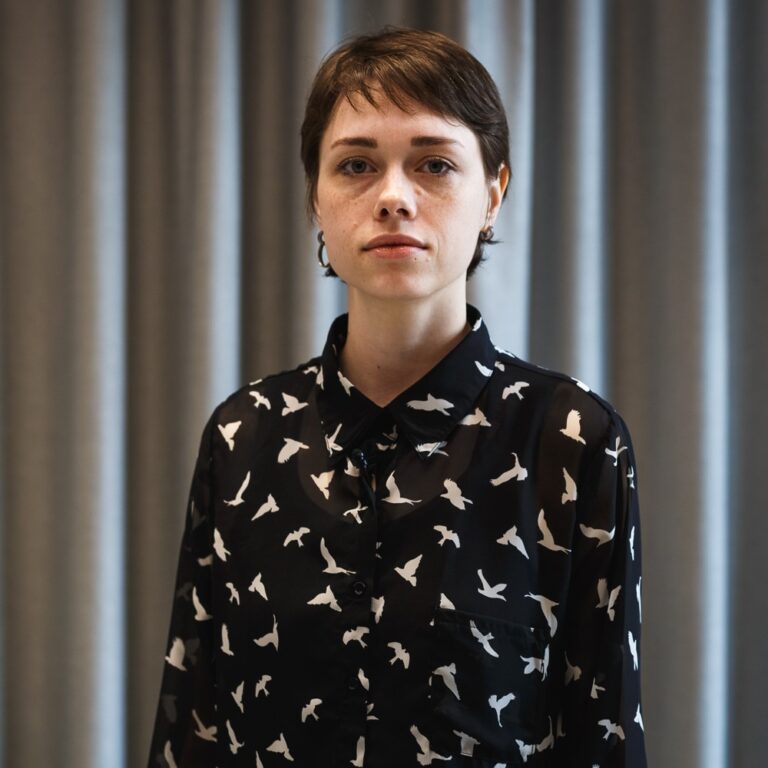
Kateryna*, the wife of an Azov soldier, spoke about leaving blockaded Mariupol in 2022 in the Ukraїner project “Listen to the voice of Mariupol.” Now, two years after the start of the full-scale invasion, we’re catching up with the heroes and heroines of this series to find out how their lives have changed since then.
*
Kateryna’s surname is withheld for security reasonsSome of the most important milestones in Kateryna’s life took place in Mariupol — she was born, grew up, and started a family there. She was raising two sons with her husband and planned to continue living in this city for many years. However, after the full-scale invasion by the Russian Federation, those warm memories of Mariupol became overshadowed by living under shelling, hiding for several months in the Azovstal metallurgical plant, and the capture of her husband. For safety reasons, Kateryna and her children left for Ireland in August of 2022. There, she takes care of her relatives, pursues higher education, and attends rallies in support of Ukraine while awaiting her husband’s return.
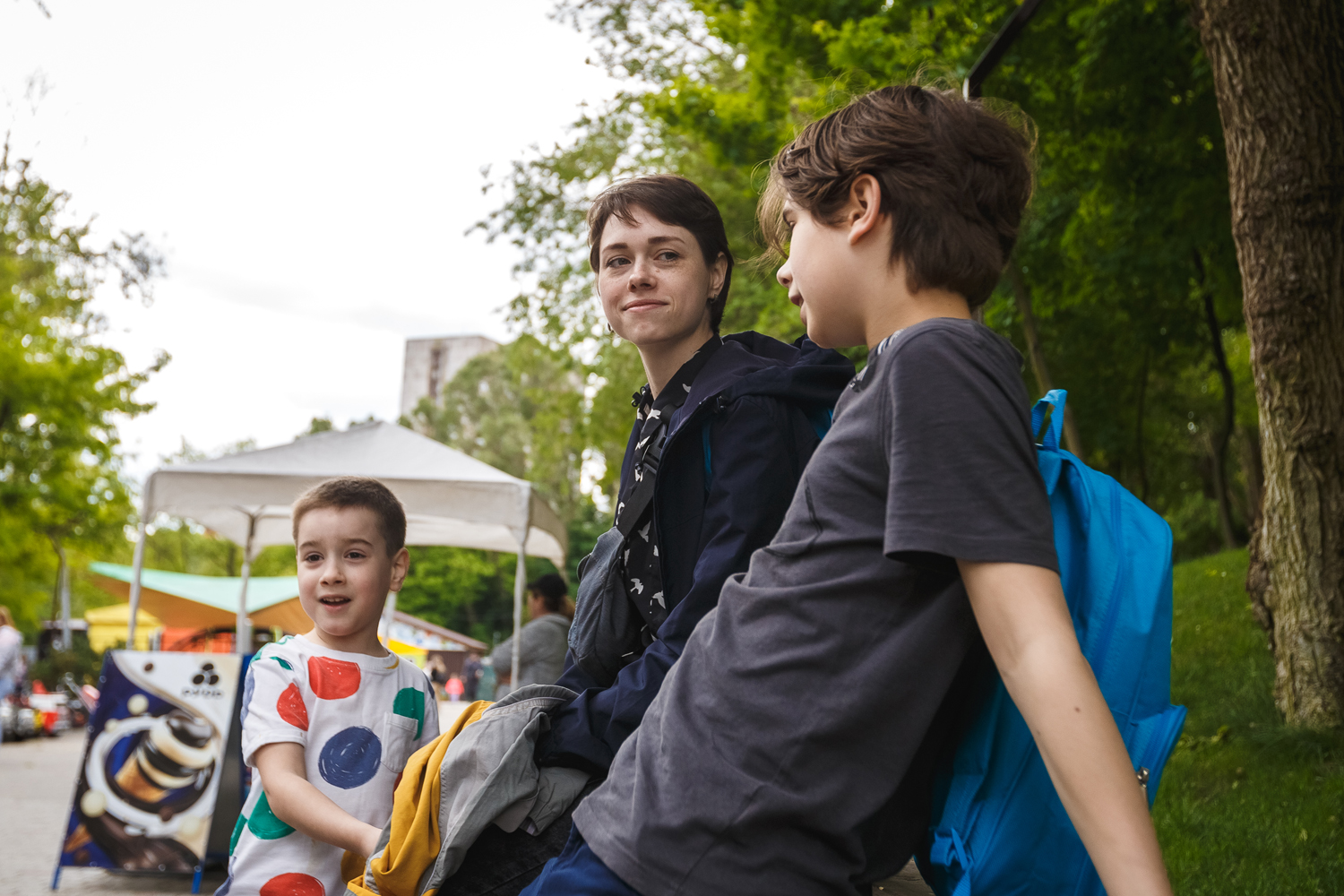
Photo: Yurii Stefanyak
Kateryna’s family encountered the Russo-Ukrainian war right at its inception in 2014 with the launch of the Anti-Terrorist Operation (ATO). Oleksandr, Kateryna’s husband, decided to enlist in the army because he couldn’t tolerate invaders in his homeland. He served for several years in the National Guard of Ukraine (NGU) and later transferred to a special operations unit called Azov, which in 2023 was reorganised into the 12th Azov Special Forces Brigade of the NGU.
АТО
The Anti-Terrorist Operation was a set of measures taken by Ukrainian law enforcement agencies to counteract the activities of illegal Russian and pro-Russian armed groups in the war in eastern Ukraine. It was launched in 2014. In 2018, it was transformed into the Joint Forces Operation.Just before 24 February 2022, Oleksandr urged Kateryna to pack her things and leave Mariupol. As a soldier, he had more insight into possible offensive plans than civilians. Later, they realised that evacuating quickly wouldn’t be feasible given the serious preparation of the Russian troops. On the first day of the full-scale invasion, Oleksandr was already on duty, having been called up a few days earlier due to the military alert. Meanwhile, Kateryna and her sons, Lev and Marko, went to stay with their grandmother, who lived on the outskirts of Mariupol.
In early March, as the Russian military began massively shelling the outskirts of the city, the cellular network also shut off. At Oleksandr’s request, Azov soldiers escorted Kateryna and her sons to a safer location – one of the workshops at the Azovstal plant. However, after a few days, it became too risky to remain there due to the ongoing shelling. As a result, she sought refuge in the plant’s bunker along with her children and other civilians. Kateryna, Lev, and Marko stayed there for 53 days.
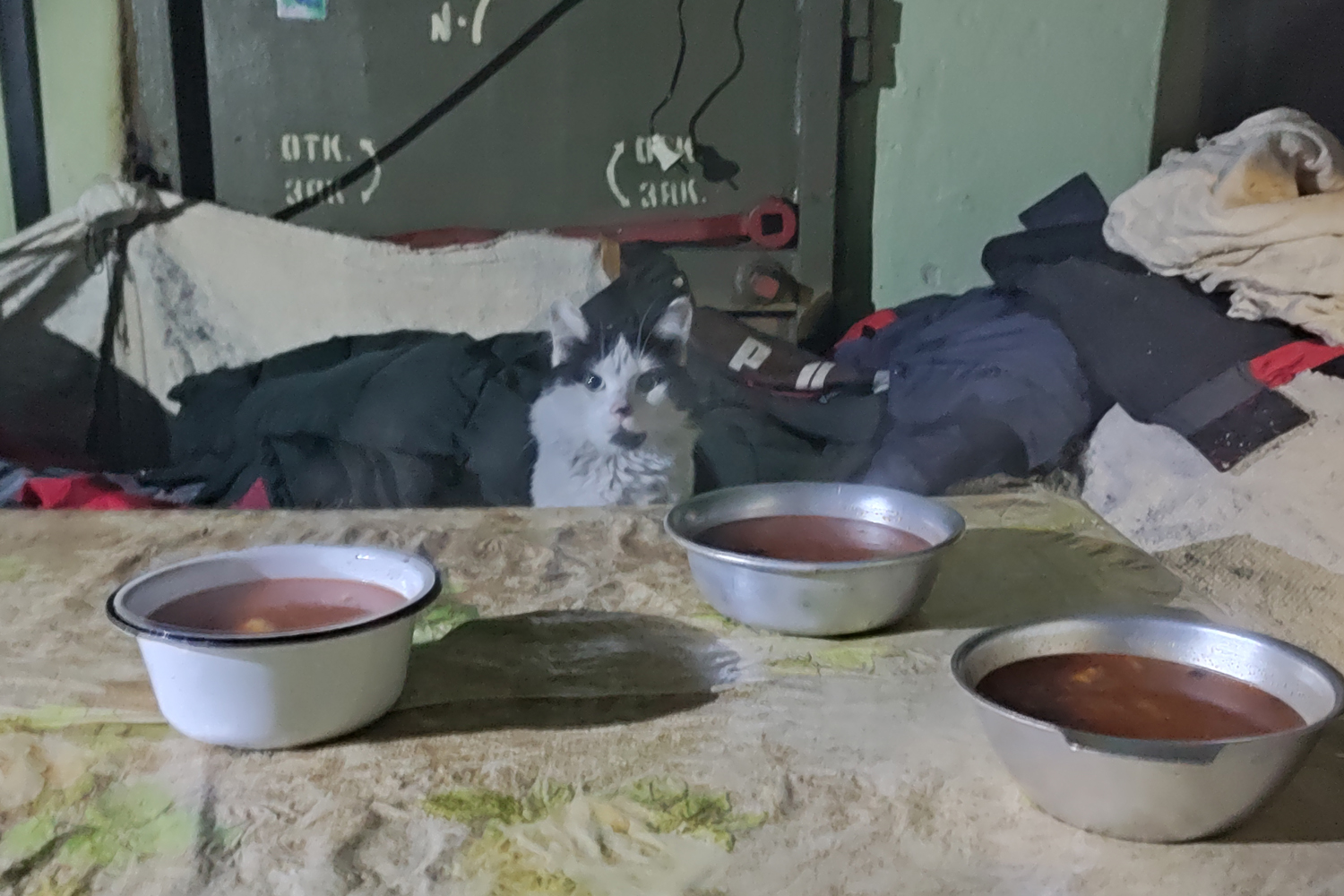
Photo provided by Kateryna.
Civilian evacuations began on 1 May through a humanitarian corridor organised by the UN and the Red Cross. It took Kateryna and her children almost three days to reach Zaporizhizhia. Later, they moved to Dnipro. Several weeks after that, on the night of 16-17 May 2022, the defenders of Azovstal, including Oleksandr, received an order to cease their defence. Oleksandr was captured by the Russians. The couple hadn’t seen each other since 29 April, and the last message Kateryna had received from her husband was from around 13 May. Until February 2024, Kateryna only knew the approximate coordinates of where he was being held. She would occasionally hear from his released comrades-in-arms that he was alive. But at the end of the month, Kateryna received more distressing news: “In February, we learned that my husband had been sentenced to 27 years of incarceration. In a video, we saw him testifying against himself.”
A different country
Kateryna eventually decided to move to Ireland with her children, specifically to the town of Carlow, but her path to that decision was not straightforward. While they were temporarily residing in Dnipro, she was offered the opportunity to travel to Poland for respite and recuperation away from the shelling and air raid alerts. Kateryna crossed the border into Poland, but later decided to return to Ukraine. “I returned from Poland very quickly. I said, ‘I want to go home, I don’t want to go anywhere else.’”
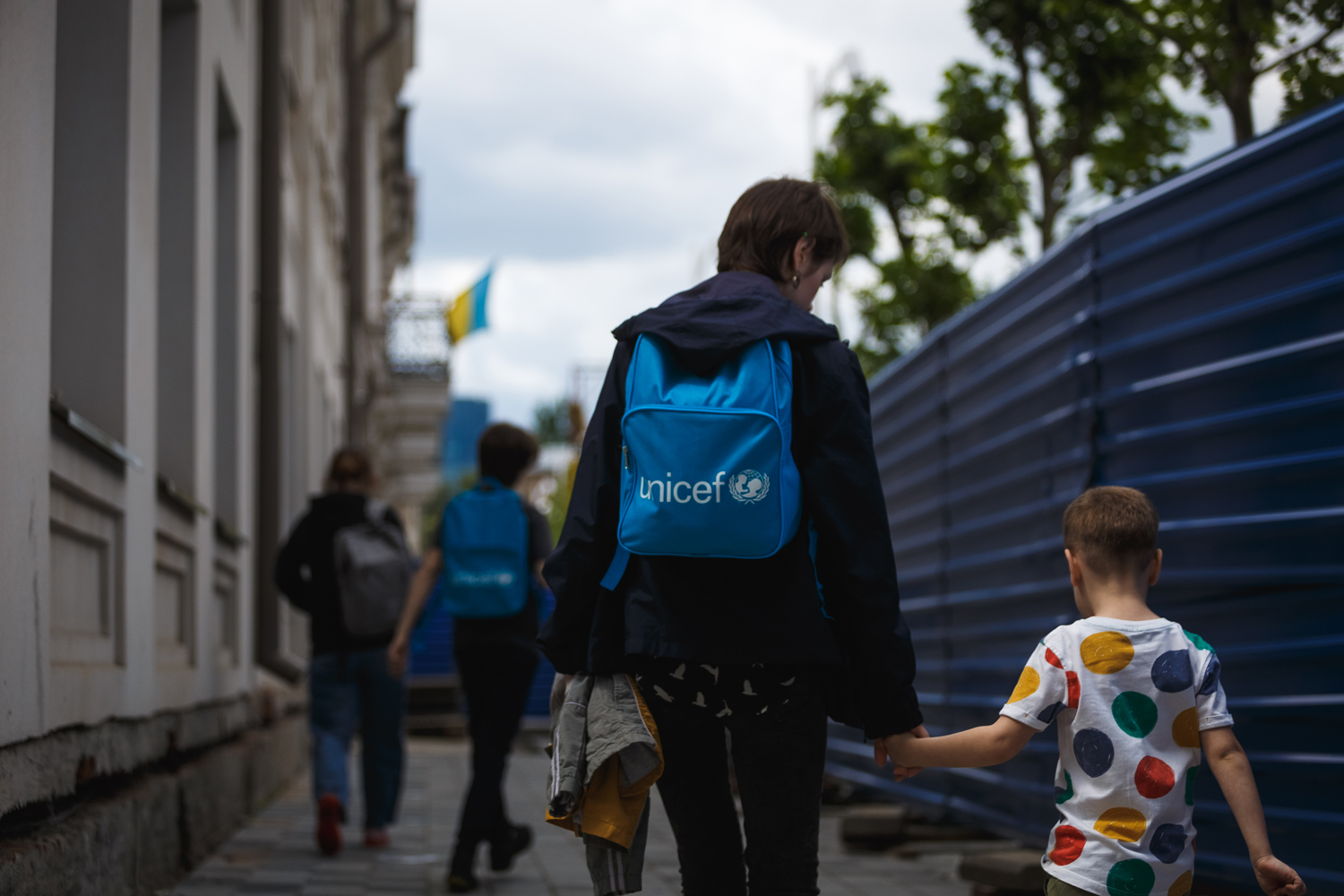
Photo: Yurii Stefanyak
Then they stayed in Ivano-Frankivsk, where Kateryna’s friends supported her. However, after a month, she realised that she did not feel safe even in Ukraine’s western regions, which are farther from the front line. The air raid sirens caused immense stress. Kateryna recalls how she was constantly waiting for something bad to happen, for the worst-case scenario, because in Mariupol she got used to constantly worrying about the lives of her sons and other loved ones. Her sons also had a hard time:
“Their first reaction was always to run to me, hug me, and wait for instructions: what should we do? It was very scary, especially at night.”
Oleksandr’s brother, who was already living in Ireland in the summer of 2022, urged them to move there. He insisted that Kateryna and the children would feel safest and most protected there. After considering the pros and cons, Kateryna prioritised her mental health and agreed to move to a distant country. She went to Ireland with her sons, her husband’s mother, and her grandmother. Thanks to a “yellow letter” – a document that provides temporary support in Ireland – they receive social assistance and live in social housing.
“It’s like a small village, you could say. Here, Ukrainians live in all of these houses, so [my children] have friends among both Ukrainians and Irish children. [They] visit each other, attend birthdays; they have adapted well, but they still miss home, Ukraine, and we plan for their eventual return.”
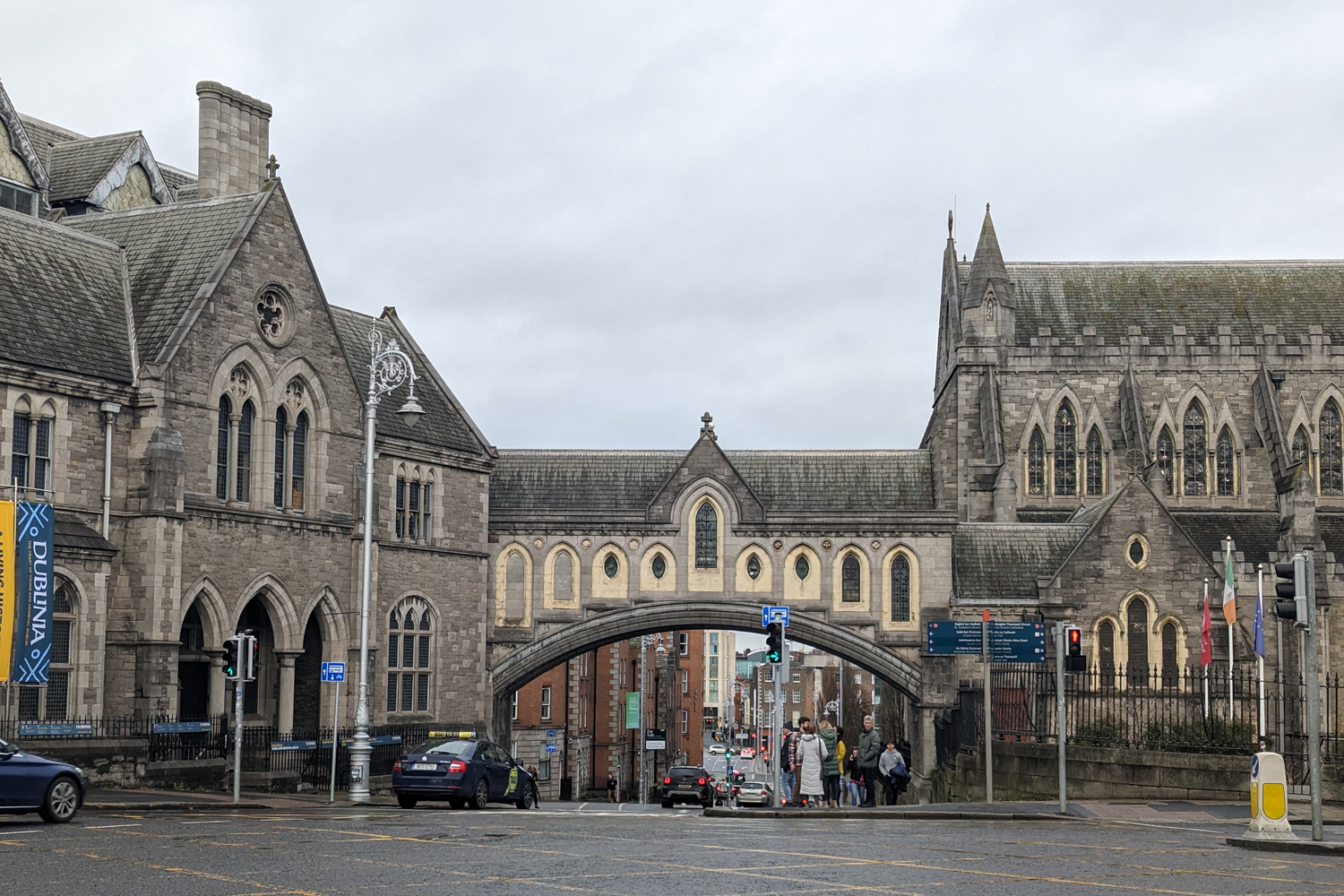
Photo: Yurii Stefanyak
Realising a cinematic dream
Kateryna and her family spent their first year in Carlow getting used to their new surroundings. Despite the absence of air raid alerts, she still feels anxiety when hearing passenger planes fly by.
“Airplanes are probably what trigger me the most, because it’s the sound of danger. It’s associated [with shelling], I can’t do anything about it. Every time I get so tense; even though I understand that it’s safe here, I still react every time.”
In order to communicate with the Irish, Kateryna had to learn another language. The majority of the population understands English, so she attended classes with teachers and also studied on her own. However, she feels that communication with native speakers helped more than any lessons. Marko and Lev adapted to the new language environment even faster: now they study not only English but also Irish at the local school.
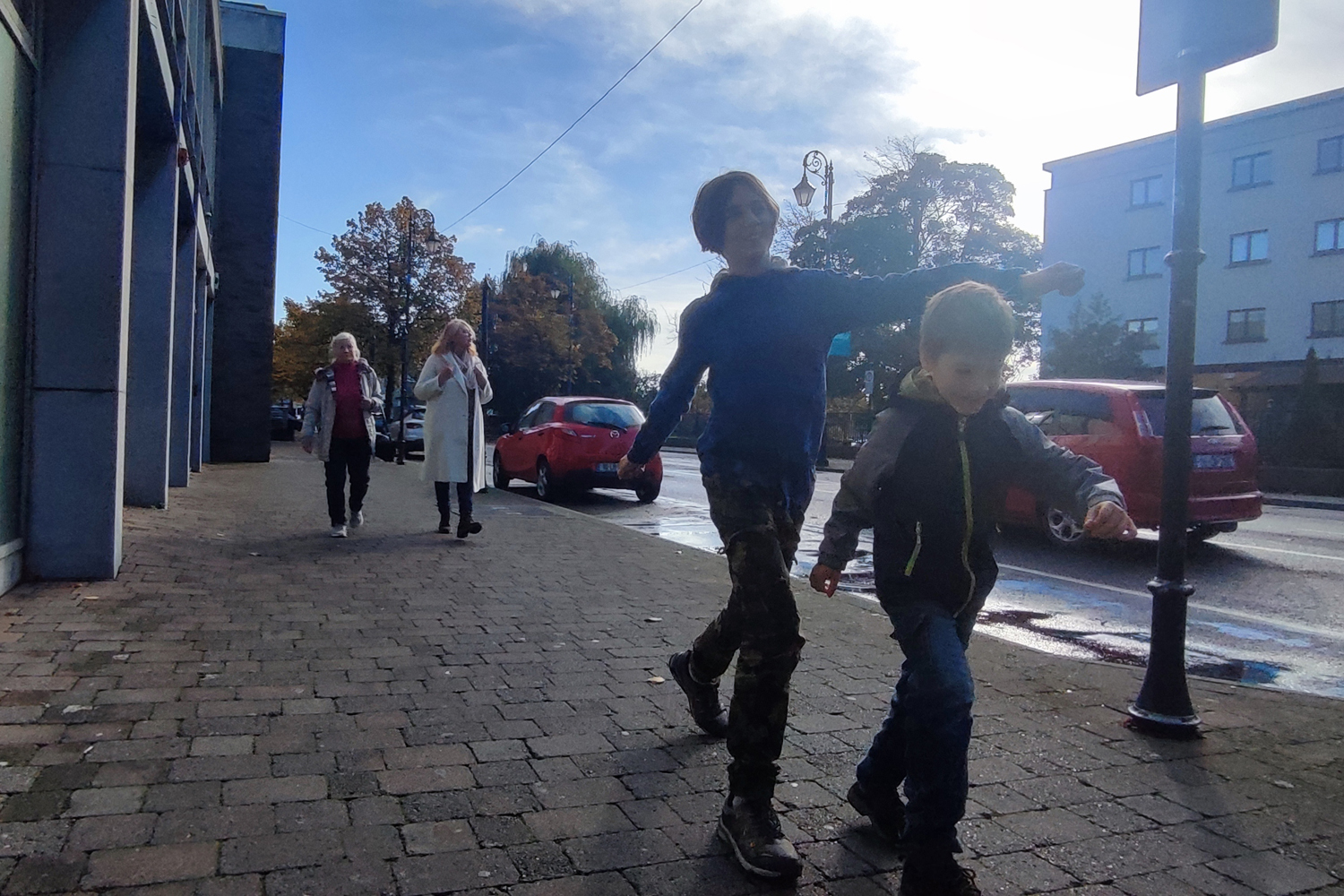
Photo provided by Kateryna.
In addition to everyday communication, Kateryna also needed to learn English for admission to university (she did not receive higher education in Ukraine). She enrolled in the filmmaking program at the Carlow Institute, which teaches screenwriting, camera work, editing, and other basic skills needed in the film industry. This represents the realisation of a long-time dream for Kateryna, although she does not know if she will work as a film director. For now, she says that working with the camera gives her the opportunity to breathe and completely immerse herself in what she is doing.
“In general, Ireland is very conducive to studying, pursuing a profession, and finding employment. There is encouragement and assistance available, along with many programs you can participate in.”
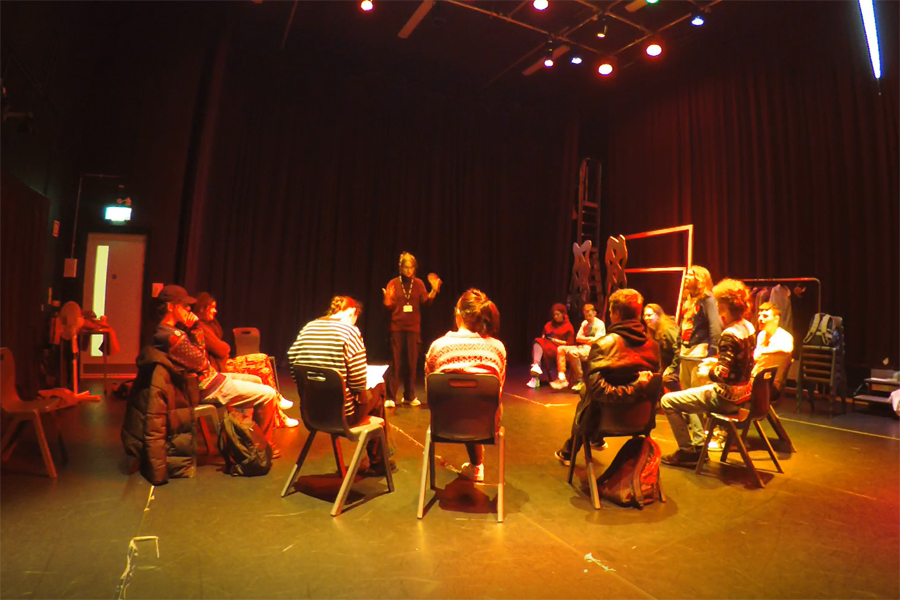
Photo provided by Kateryna.
In addition to state support for Ukrainians, there are many local volunteer organisations and Ukrainian communities that go to rallies to support the people of Ukraine. Carlow is a smaller town where such rallies rarely take place, so Kateryna and her family go to Dublin. There, every day, Irish and Ukrainians gather outside the Russian embassy, condemning the actions of this terrorist country. In general, according to Kateryna, the residents of Ireland understand the needs of Ukrainians and the reasons for their struggle because they have their own experience with an imperial neighbour. This sets them apart from foreigners who have a harder time understanding the importance of support for Ukraine.
“The Irish people are more understanding in this regard because they have experienced something similar in their relations with Britain. So I haven’t encountered any fatigue regarding the Russo-Ukrainian war, nor have I felt unwelcome here, or that they believe we need to act differently.”
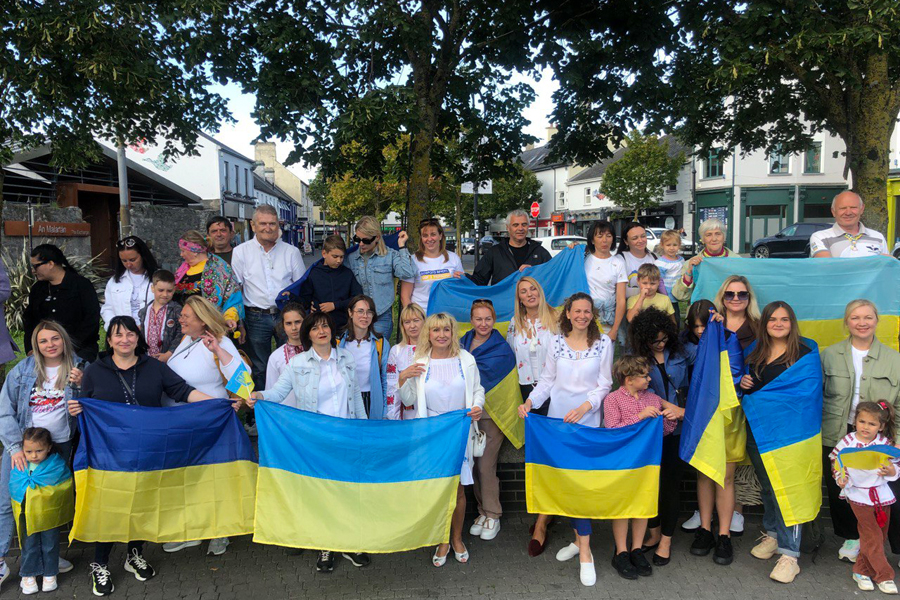
Photo provided by Kateryna.
Living in anticipation
Like many Ukrainians forced to flee abroad due to the full-scale invasion by the Russian Federation, Kateryna dreams of returning home. She says that now, for her, the word “home” encompasses not only Mariupol but also the entirety of Ukraine.
“Russia killed [our] city — it’s dead now. I don’t recognize our city; it’s something else entirely. I miss the feeling of peace and security, when everyone was together and everything was fine.”
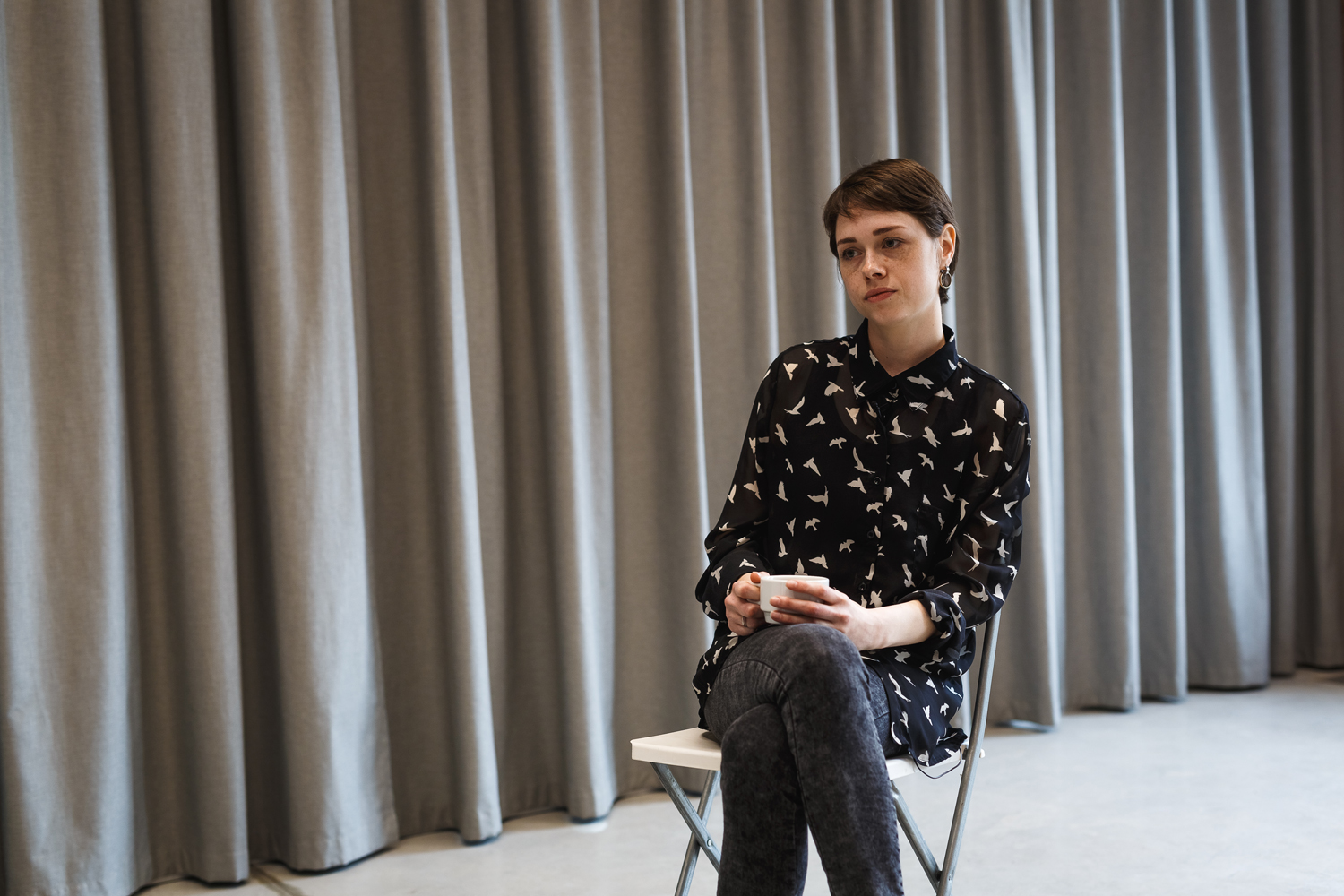
Photo: Yurii Stefanyak
Kateryna learns about events in Mariupol from the news because, fortunately, all her friends and acquaintances were able to evacuate to safer regions or other countries. Over time, she says, she is less and less surprised by both the level of propaganda from the Russian Federation and the actions of its soldiers, who are destroying and looting the city. Civilian Russians who go to Mariupol, a place destroyed by their own troops, for cheap housing or recreation by the sea don’t surprise her either.
“I see them as incomplete people. They go there voluntarily, rejoice, and do not understand at all what is really happening and what awaits them.”
Since arriving in Ireland, Kateryna and her family have not yet visited Ukraine due to new rules* stating that residents of social housing cannot travel abroad without a valid reason. And Kateryna already knows what that future reason will be — the release of her husband from Russian captivity.
*
Since October 2023, Ukrainian refugees who receive free housing will lose their place if they go abroad or even to another city in Ireland. Exceptions are granted under special circumstances, but the Department of Integration must be notified in advance.“I live for this moment. It seems that when it finally happens, everything will become clear: everything will immediately fall into place, and some plan will appear… but until then, it’s very, very difficult to plan anything.”
Oleksandr once joked that everything in life should be experienced, including captivity.
Kateryna adds that there is no way to contact her husband. Even letters sent in compliance with all requirements are not given to prisoners. One of the most difficult things for her in this situation has been realising that she can only wait and hope for the best.
“I feel that I cannot influence anything at all, and no matter where I write or call, nothing happens. It was very revealing for me when I called the Red Cross in the fall of 2022, and they called me back in the summer of 2023. They said: ‘Yes, we can confirm the capture, but do you have any news?’”
To distract herself from her worries, Kateryna tries to constantly stay occupied so as not to be alone with her thoughts. She admits that this approach might not suit everyone, but it helps her. Despite the constant strain of waiting, Kateryna also enjoys replenishing her strength by spending time with her children. On their way to the sea or the park, they share memories and thoughts on various topics, including returning to Ukraine and seeing their father.
“Perhaps the most difficult question is ‘When will dad come home?’ I don’t know how to answer that, that’s the hardest part. But in general, I try to be honest with them, as we have always been. I tell them that you have to wait, and that it will definitely happen one day.”

